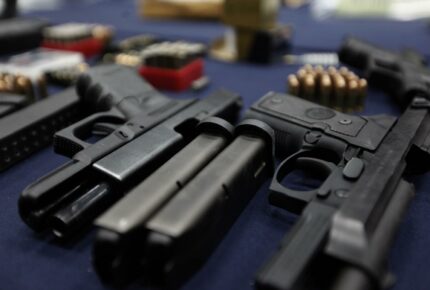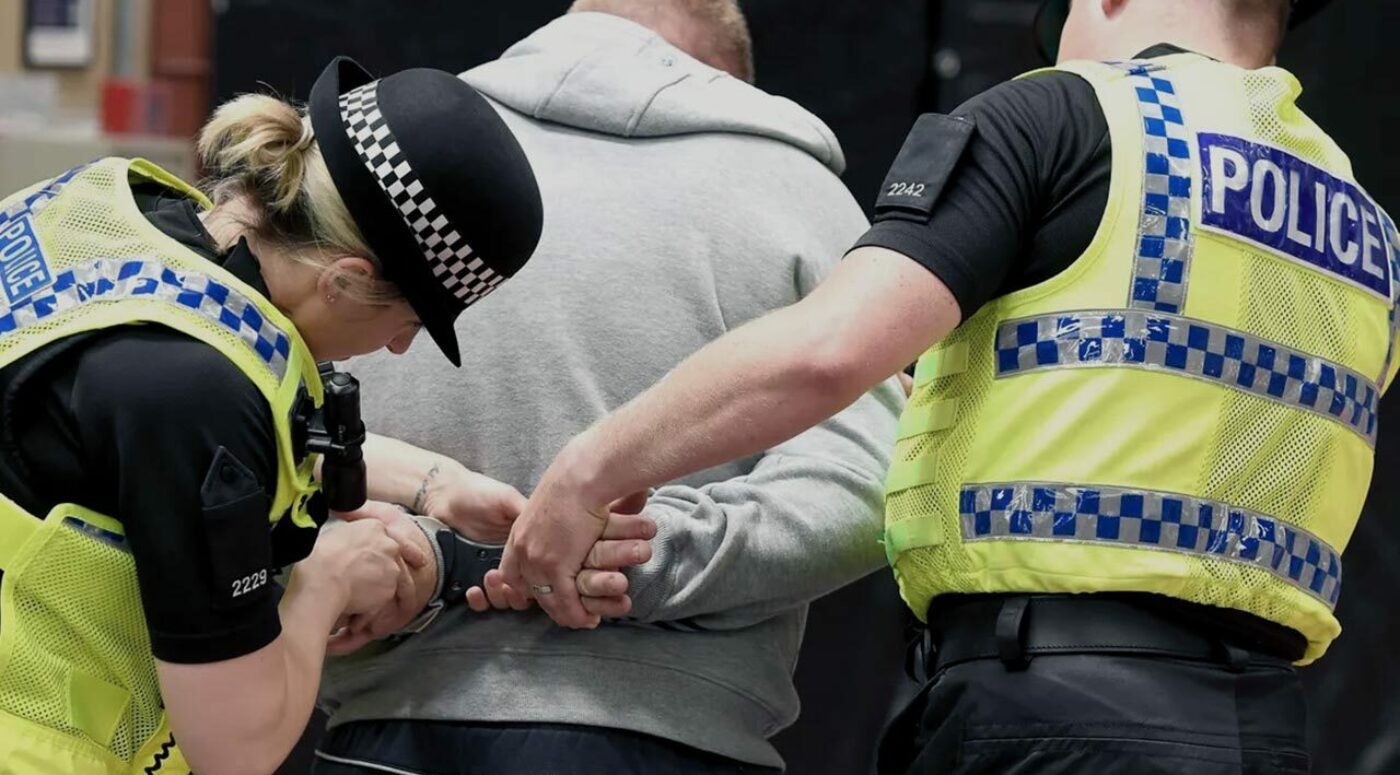

The rules around the purchase, possession, and use of firearms and ammunition in the UK are extensive and they can be very confusing. When someone refers to a ‘Section 1’ offence, they are actually referring to an offence that specifically excludes shotguns from its remit. As such, there is no such thing as a ‘Section 1 shotgun offence’. That said, there are some very closely related offences that you need to be aware of if you are thinking about owning, or already own, a shotgun. In this article, we give an overview of the firearms offences under the Firearms Act of 1968 and answer some of the most common questions we are asked about weapons offences.
What is the legal definition of a firearm?
The Firearms Act of 1968 is the main piece of legislation governing the purchase, possession, and use of firearms and ammunition in the UK. Despite it going into force decades ago, it remains a central piece of legislation that has adapted to the advancements in firearms technology.
Under Section 57(1) of the Firearms Act 1968, a firearm is defined as any of the following:
- a lethal barrelled weapon, as defined under section 57(1B);
- a prohibited weapon, as defined under section 5;
- a relevant component part in relation to a lethal barrelled weapon or a prohibited weapon, as defined in section 57(1D); or
- an accessory to a lethal barrelled weapon or a prohibited weapon where the accessory is designed or adapted to diminish the noise or flash caused by firing the weapon.
Note also that Section 57(1B) further defines a ‘lethal barrelled weapon’ as a ‘barrelled weapon of any description from which a shot, bullet or other missile, with kinetic energy of more than one joule as measured at the muzzle of the weapon, can be discharged’.
As you can see, these are broad ranging definitions that can apply to antique firearms just as readily as they can the most advanced firearms in circulation today.
Is a pump action shotgun a Section 1 firearm?
In short, no. Section 1(1) of the Firearms Act 1968 makes it an offence to possess, purchase, or acquire a firearm or ammunition without a certificate or otherwise than as authorised by such a certificate. Section 1(2) creates the related offence of failing to comply with the conditions of such a certificate.
It is Section 1(3) of the Act that states that Section 1 does not apply to shotguns or air weapons. Accordingly, there is no ‘Section 1’ offence that relates to shotguns. There are, however, related offences, as we explore below.
What qualifies as a shotgun?
In England and Wales, a shotgun is defined by Section 1(3)(a) and Section 57(4) of the Firearms Act 1968. Those sections stipulate that a shotgun is a ‘smooth-bore gun (not being an air gun)’ that:
- has a barrel not less than 24 inches in length;
- does not have any barrel with a bore exceeding 2 inches in diameter;
- either has no magazine or has a non-detachable magazine incapable of holding more than two cartridges; and
- is not a revolver.
For most, there will be no surprises in this definition of a shotgun as it corresponds to the images one might think about in seeing shotguns on televisions or in magazines. Only really in the case of modified or homemade weapons does the strict definition of a shotgun come into play in legal matters.
What offences relate to shotguns in the Firearms Act 1968?
While shotguns are not subject to the rules in Section 1, they are still subject to rules on certification. These are found in Section 2 of the Firearms Act 1968, which creates two offences:
- Section 2(1) creates the offence of possessing, purchasing, or acquiring a shotgun without a certificate, and
- Section 2(2) creates the offence of failing to comply with the conditions of such a certificate.
What is the minimum sentence for a shotgun offence?
In 2021, the Sentencing Council published new guidelines on sentencing for firearms offences. Those guidelines state that the offence of possession of a shotgun without a certificate is triable either way (meaning it could be dealt with in the Magistrates’ court or the Crown Court, depending on the seriousness of the case and any other related offences that might be tried alongside it) and, at an absolute minimum, would attract a high-level community order. The minimum prison sentence that can be given for this offence is one year.
What is the maximum sentence for possession of a weapon?
Those same sentencing guidelines specify that the Section 2 offence attracts a maximum penalty of 5 years’ imprisonment. The offender may also be served with a fine that could be as high as 700% of their relevant weekly income.
The actual sentence that an offender receives will be determined by several factors relating to the type of weapon used, the culpability of the offender, and the harm caused by the offence.
If the offence was committed in relation to a shotgun that has been shortened, the offence will be deemed more serious and a longer sentence will result. The same is true if the weapon has been otherwise modified.
When looking at culpability, a judge will take into account the facts and decide whether the case falls into one of high, medium, or low culpability.
High culpability will be demonstrated where the offender uses the shotgun for a criminal purpose, intends to use it for such a purpose, or is reckless as to whether it is used for such a purpose.
Medium culpability will be demonstrated where the shotgun was produced or used, loaded or held with compatible ammunition, or was intended to be used.
Low culpability will be demonstrated where there was no use or intention to use the shotgun.
As for harm, the judge determines the relevant category of harm depending on the facts of the case.
The most serious, Category 1, type of harm will be deemed to have been caused where serious alarm/distress was caused, a high risk of death or serious physical or psychological harm was present, or there was a high risk of serious disorder.
Category 3 will be deemed to have been caused where there was no/minimal alarm/distress caused, no/minimal risk of death or serious physical or psychological harm, and no/minimal risk of serious disorder.
A middle category, Category 2, will be deemed to have been caused if it is appropriate to determine such based on a balance of Category 1 and Category 3 factors.
With all this in mind, the judge will determine the appropriate starting point and ultimate sentence for the offence, taking into consideration also any guilty plea that may have been submitted at the start of or during the trial.
If there was a guilty plea submitted, the maximum that the offender will receive is a third discount on the sentence (taking a 12 year sentence down to an 8 year sentence, for example) if they lodged it at the very start of proceedings. If any later, the discount will be lower.
What is the sentence for ammunition?
The offences we have outlined here can be committed in relation to firearms or ammunition. In that respect, there is no difference in the sentencing rules.
What is the effect of having a firearm on sentences for other crimes?
If you used or were in possession of a firearm at the time at which you committed another offence, such as assault, then it is highly likely that a judge will deem this to be an aggravating factor that makes your crime more serious. This means that you will probably receive a much harsher sentence for the crime for which you were found guilty. After all, assault with a shotgun, for example, is much worse by anyone’s standards than assault with a fist.
In certain cases, being in possession of a firearm at the time of an offence can lead to an automatic life sentence. This is the case with robbery, for example. These rules are contained in the Sentencing Act of 2020 and are intended to appropriately punish offenders who escalate crimes even further by choosing to bring along an extremely dangerous weapon.
Where to get more help
If you or someone you care about is facing a charge for a shotgun offence, or is already being prosecuted for one, it is very important that you secure the advice of a solicitor as soon as possible. Firearms offences are very complex and there is considerable nuance that goes into how, why, and when these crimes are charged. If you get the help of a solicitor early on in the process, you stand a better chance of a successful defence (we may even be able to get your case dropped before it goes to trial). For more information and a free no-obligation consultation, get in touch with the team at Stuart Miller Solicitors today.
OUR COMMITMENTS TO YOU:
-
Responsive
A legal expert will consult you within 24 hours of making an enquiry.
-
Empathetic
We will always treat you with trust, understanding and respect.
-
Specialised
Your case will be handled by an expert who specialises in your type of offence.
-
Proactive
We will take early action to end proceedings as soon as it is practically and legally possible to do so.
-
Engaged
You will be kept updated on your case at all times. We will provide a named contact available to answer your questions.
-
Caring
We understand this is a difficult and stressful time for you and your family. Our team will support you every step of the way.
-
Tenacious
We will never give up on your case. We fight tirelessly to get you the best possible outcome.